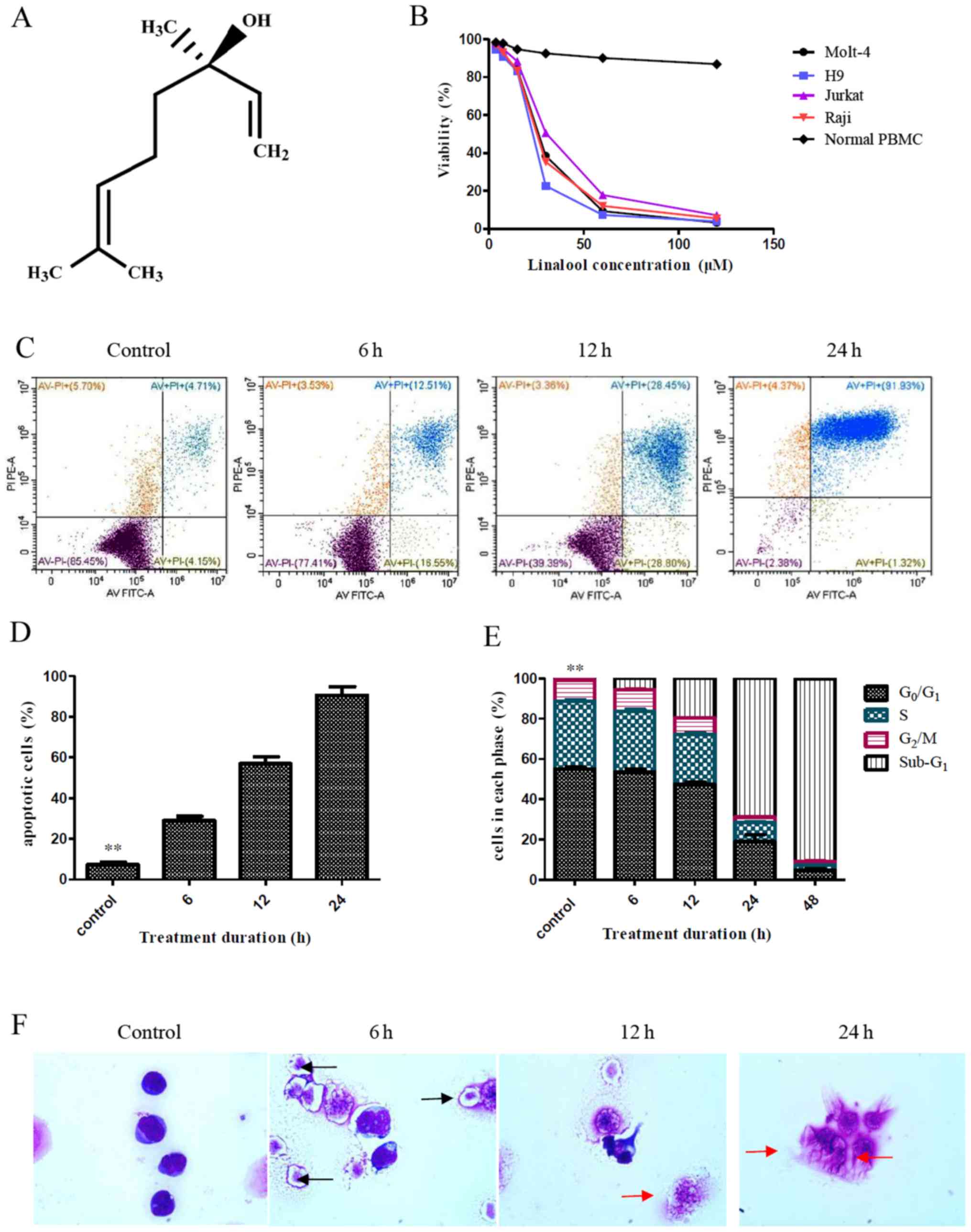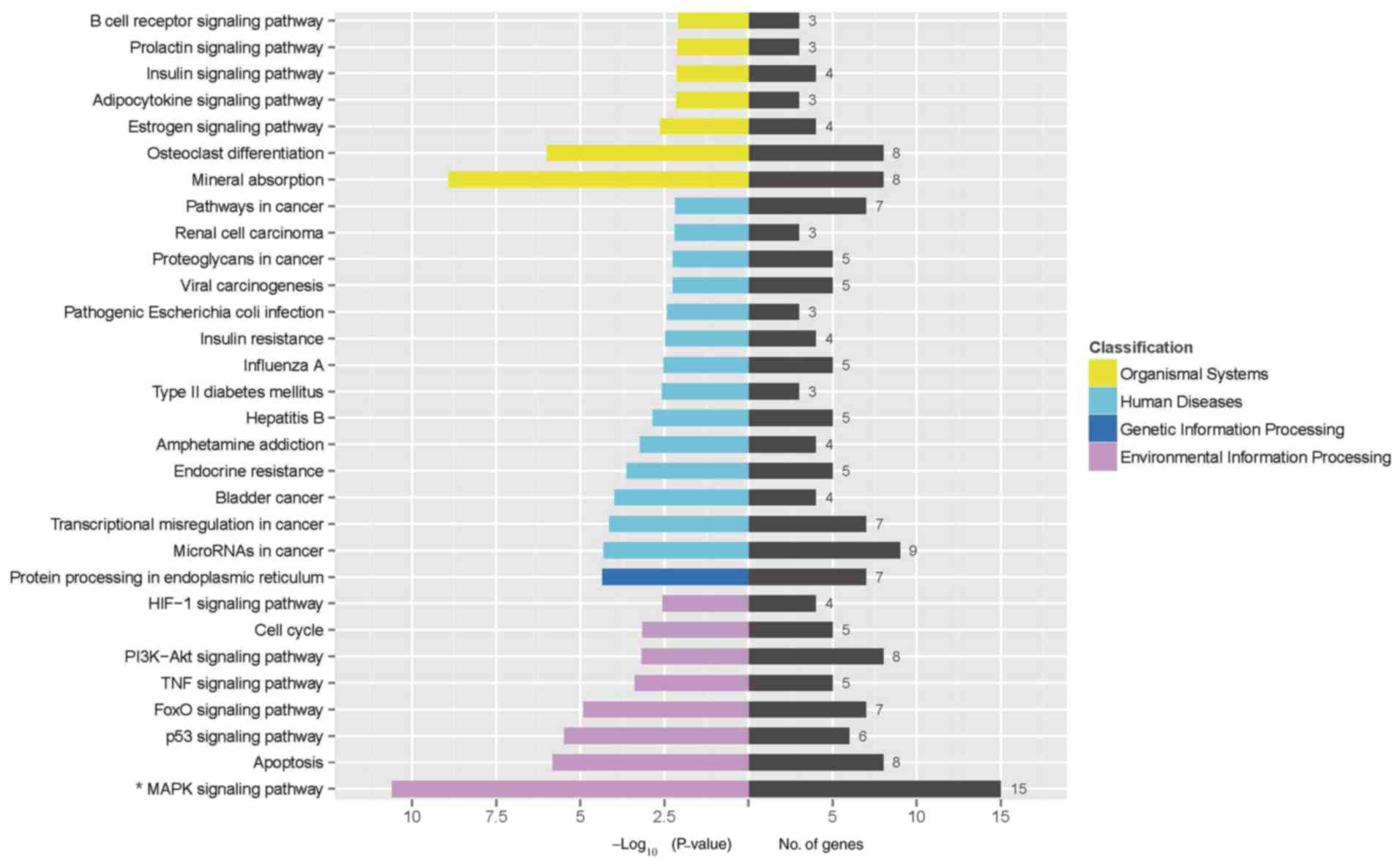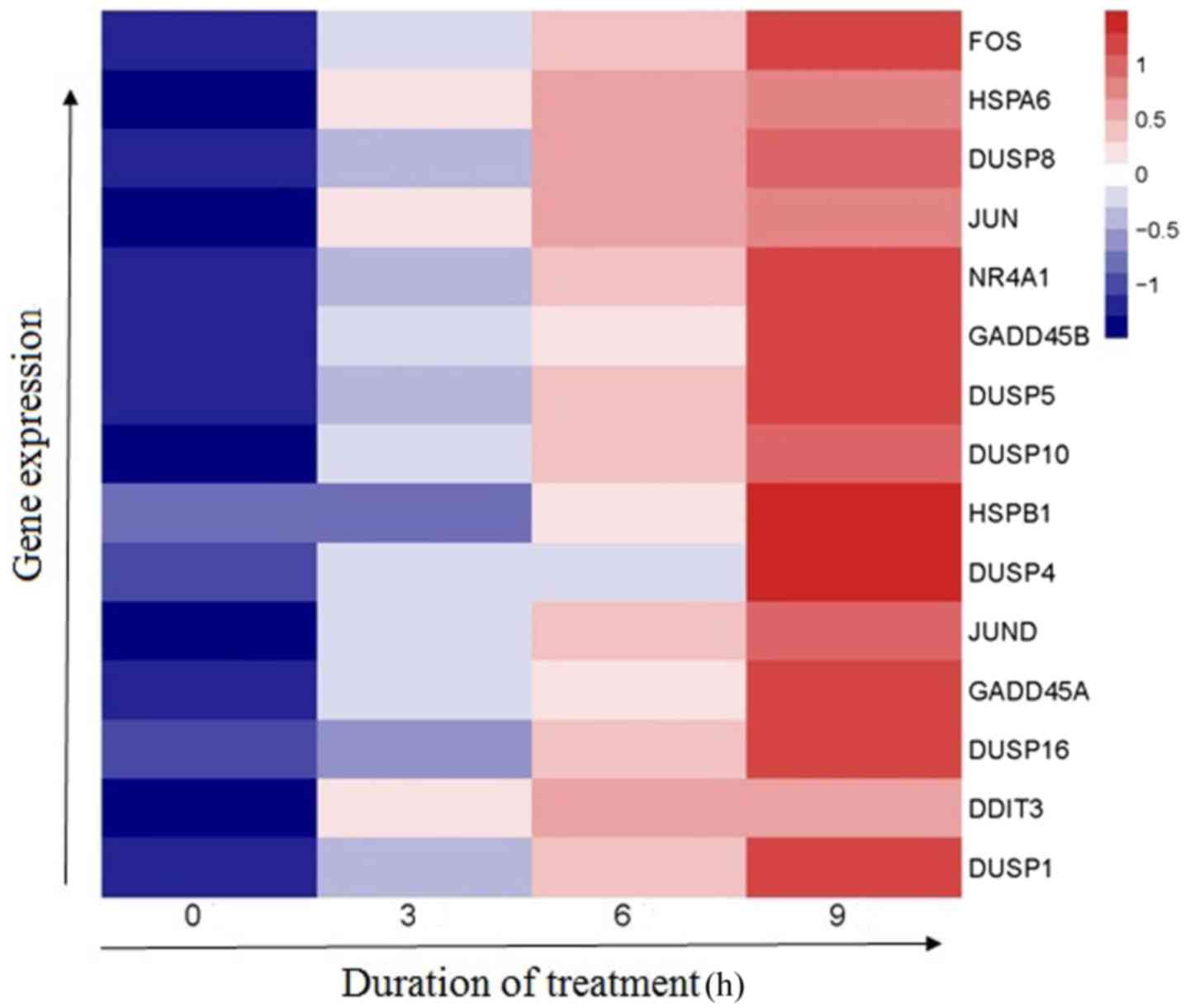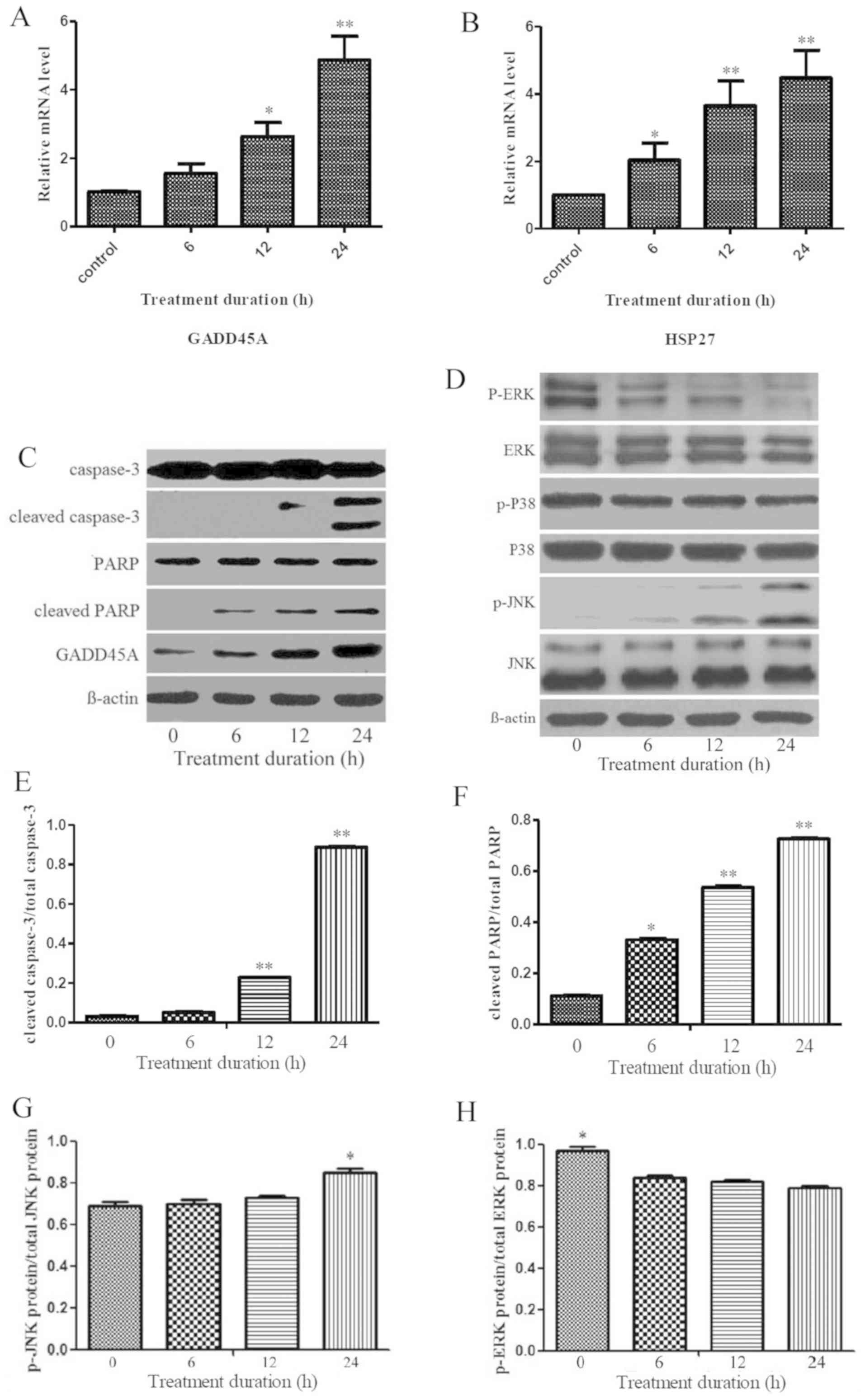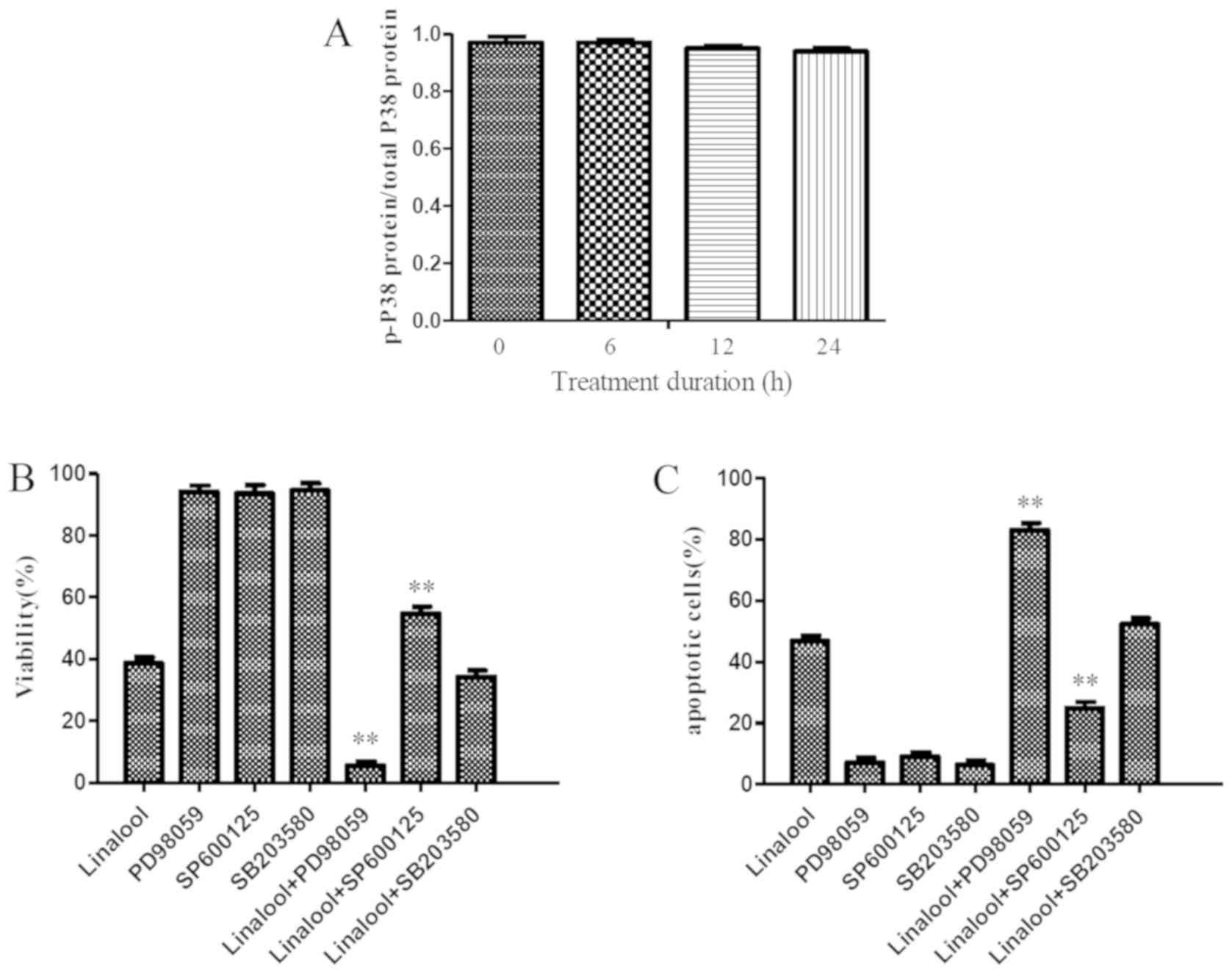|
1
|
Swerdlow SH, Campo E, Pileri SA, Harris
NL, Stein H, Siebert R, Advani R, Ghielmini M, Salles GA, Zelenetz
AD and Jaffe ES: The 2016 revision of the world health organization
classification of lymphoid neoplasms. Blood. 127:2375–2390. 2016.
View Article : Google Scholar : PubMed/NCBI
|
|
2
|
Gascoyne RD, Campo E, Jaffe ES, Chan WC,
Chan JK, Rosenwald A, Stein A and Swerdlow SH: Diffuse large B-cell
lymphoma, not otherwise specified. World health organization
classification of haematopoietic and lymphoid tissues of tumors.
4th. IARC Press; Lyon, France: pp. 291–297. 2016
|
|
3
|
Kato K, Uike N, Wake A, Yoshimitsu M,
Tobai T, Sawayama Y, Takatsuka Y, Fukuda T, Uchida N, Eto T, et al:
The outcome and characteristics of patients with relapsed adult T
cell leukemia/lymphoma after allogeneic hematopoietic stem cell
transplantation. Hematol Oncol. 37:54–61. 2019. View Article : Google Scholar : PubMed/NCBI
|
|
4
|
Vadillo E, Dorantes-Acosta E, Pelayo R and
Schnoor M: T cell acute lymphoblastic leukemia (T-ALL): New
insights into the cellularorigins and infiltration mechanisms
common and unique among hematologic malignancies. Blood Rev.
32:36–51. 2018. View Article : Google Scholar : PubMed/NCBI
|
|
5
|
Thol F and Ganser A: Treatment of relapsed
acute myeloid leukemia. Curr Treat Options Oncol. 21:662020.
View Article : Google Scholar : PubMed/NCBI
|
|
6
|
Vázquez-Sánchez D, Galvão JA, Mazine MR,
Gloria EM and Oetterer M: Control of staphylococcus aureus biofilms
by the application of single and combined treatments based in plant
essential oils. Int J Food Microbiol. 286:128–138. 2018. View Article : Google Scholar : PubMed/NCBI
|
|
7
|
Burdock GA and Carabin IG: Safety
assessment of coriander (Coriandrum sativum L.) essential
oil as a food ingredient. Food Chem Toxicol. 47:22–34. 2009.
View Article : Google Scholar : PubMed/NCBI
|
|
8
|
Elliott JF, Ramzy A, Nilsson U, Moffat W
and Suzuki K: Severe intractable eyelid dermatitis probably caused
by exposure to hydroperoxides of linalool in a heavily fragranced
shampoo. Contact Dermatitis. 76:114–115. 2017. View Article : Google Scholar : PubMed/NCBI
|
|
9
|
Ramzi A, Ahmadi H, Sadiktsis I and Nilsson
U: A two-dimensional non-comprehensive reversed/normal phase
high-performance liquid chromatography/tandem mass spectrometry
system for determination of limonene and linalool hydroperoxides. J
Chromatogr A. 1566:102–110. 2018. View Article : Google Scholar : PubMed/NCBI
|
|
10
|
Jabir MS, Taha AA, Sahib UI, Taqi ZJ,
Al-Shammari AM and Salman AS: Novel of nano delivery system for
linalool loaded on gold nanoparticles conjugated with CALNN peptide
for application in drug uptake and induction of cell death on
breast cancer cell line. Mater Sci Eng C Mater Biol Appl.
94:949–964. 2019. View Article : Google Scholar : PubMed/NCBI
|
|
11
|
Elansary HO, Abdelgaleil SA, Mahmoud EA,
Yessoufou K, Elhindi K and El-Hendawy S: Effective antioxidant,
antimicrobial and anticancer activities of essential oils of
horticultural aromatic crops in northern Egypt. BMC Complement
Altern Med. 18:2142018. View Article : Google Scholar : PubMed/NCBI
|
|
12
|
Sakurai K, Tomiyama K, Yaguchi Y and
Asakawa Y: Characteristic odor of the Japanese liverwort
(Leptolejeunea elliptica). J Oleo Sci. 69:767–770. 2020.
View Article : Google Scholar : PubMed/NCBI
|
|
13
|
Kubatka P, Kello M, Kajo K, Samec M, Jasek
K, Vybohova D, Uramova S, Liskova A, Sadlonova V, Koklesova L, et
al: Chemopreventive and therapeutic efficacy of cinnamomum
zeylanicum L. Bark in experimental breast carcinoma: Mechanistic in
vivo and in vitro analyses. Molecules. 25:13992020. View Article : Google Scholar
|
|
14
|
Chang MY, Shieh DE, Chen CC, Yeh CS and
Dong HP: Linalool induces cell cycle arrest and apoptosis in
leukemia cells and cervical cancer cells through CDKIs. Int J Mol
Sci. 16:28169–28179. 2015. View Article : Google Scholar : PubMed/NCBI
|
|
15
|
Miyashita M and Sadzuka Y: Effect of
linalool as a component of humulus lupulus on doxorubicin-induced
antitumor activity. Food Chem Toxicol. 53:174–179. 2013. View Article : Google Scholar : PubMed/NCBI
|
|
16
|
He X, Zhu Y, Lin YC, Li M, Du J, Dong H,
Sun J, Zhu L, Wang H, Ding Z, et al: PRMT1-mediated FLT3 arginine
methylation promotes maintenance of FLT3-ITD+acute myeloid
leukemia. Blood. 134:548–560. 2019. View Article : Google Scholar : PubMed/NCBI
|
|
17
|
Maeda H, Yamazaki M and Katagata Y:
Kuromoji (Lindera umbellata) essential oil-induced apoptosis
and differentiation in human leukemiaHL-60 cells. Exp Ther Med.
3:49–52. 2012. View Article : Google Scholar : PubMed/NCBI
|
|
18
|
Saab AM, Tundis R, Loizzo MR, Lampronti I,
Borgatti M, Gambari R and Menichini F, Esseily F and Menichini F:
Antioxidant and antiproliferative activity of Laurus nobilis
L. (Lauraceae) leaves and seeds essential oils against K562 human
chronic myelogenous leukaemia cells. Nat Prod Res. 26:1741–1745.
2012. View Article : Google Scholar : PubMed/NCBI
|
|
19
|
Gu Y, Ting Z, Qiu X, Zhang X, Gan X, Fang
Y, Xu X and Xu R: Linalool preferentially induces robust apoptosis
of a variety of leukemia cells via upregulating p53 and
cyclin-dependent kinase inhibitors. Toxicology. 268:19–24. 2010.
View Article : Google Scholar : PubMed/NCBI
|
|
20
|
Souza-Junior FJ, Luz-Moraes D, Pereira FS,
Barros MA, Fernandes LM, Queiroz LY, Maia CF, Maia JG and
Fontes-Junior EA: Aniba canelilla (Kunth) mez (Lauraceae): A
review of ethnobotany, phytochemical, antioxidant,
anti-inflammatory, cardiovascular, and neurological properties.
Front Pharmacol. 11:6992020. View Article : Google Scholar : PubMed/NCBI
|
|
21
|
Li CJ: Flow cytometry analysis of cell
cycle and specific cell synchronization with butyrate. Methods Mol
Biol. 1524:149–159. 2017. View Article : Google Scholar : PubMed/NCBI
|
|
22
|
Langmead B and Salzberg SL: Fast
gapped-read alignment with bowtie 2. Nat Methods. 9:357–359. 2012.
View Article : Google Scholar : PubMed/NCBI
|
|
23
|
Livak KJ and Schmittgen TD: Analysis of
relative gene expression data using real-time quantitative PCR and
the 2(-Delta Delta C(T)) method. Methods. 25:402–408. 2001.
View Article : Google Scholar : PubMed/NCBI
|
|
24
|
Li B and Dewey CN: RSEM: Accurate
transcript quantification from RNA-Seq data with or without a
reference genome. BMC Bioinformatics. 12:3232011. View Article : Google Scholar : PubMed/NCBI
|
|
25
|
Li JJ, Wang W, Wang XQ, He Y, Wang SS and
Yan YX: A novel strategy of identifying circRNA biomarkers in
cardiovascular disease by meta-analysis. J Cell Physiol.
234:21601–21612. 2019. View Article : Google Scholar : PubMed/NCBI
|
|
26
|
Tang YL, Fang LJ, Zhong LY, Jiang J, Dong
XY and Feng Z: Hub genes and key pathways of traumatic brain
injury: Bioinformatics analysis and in vivo validation. Neural
Regen Res. 15:2262–2269. 2020. View Article : Google Scholar : PubMed/NCBI
|
|
27
|
Wu Y, Xia L, Guo Q, Zhu J, Deng Y and Wu
X: Identification of chemoresistance-associated key genes and
pathways in high-grade serous ovarian cancer by bioinformatics
analyses. Cancer Manag Res. 12:5213–5223. 2020. View Article : Google Scholar : PubMed/NCBI
|
|
28
|
Gao M, Zhang S, Luo C, He X, Wei S, Jiang
W, He F, Lin Z, Yan M and Dong W: Transcriptome analysis of starch
and sucrose metabolism across bulb development in Sagittaria
sagittifolia. Gene. 649:99–112. 2018. View Article : Google Scholar : PubMed/NCBI
|
|
29
|
Gu Y, Zhang J, Ma X, Kim BW, Wang H, Li J,
Pan Y, Xu Y, Ding L, Yang L, et al: Stabilization of the c-myc
protein by CAMKIIγ promotes T cell lymphoma. CancerCell. 2:115–128.
2017.
|
|
30
|
Yang L, Zhang C, Chen J, Zhang S, Pan G,
Xin Y, Lin L and You Z: Shenmai injection suppresses multidrug
resistance in MCF-7/ADR cells through the MAPK/NF-κB signalling
pathway. Pharm Biol. 58:276–285. 2020. View Article : Google Scholar : PubMed/NCBI
|
|
31
|
Baell JB, Leaver DJ, Hermans SJ, Kelly GL,
Brennan MS, Downer NL, Nguyen N, Wichmann J, McRae HM, Yang Y, et
al: Inhibitors of histone acetyltransferases KAT6A/B induce
senescence and arrest tumor growth. Nature. 560:253–257. 2018.
View Article : Google Scholar : PubMed/NCBI
|
|
32
|
Gao Y, Liu H, Wang H, Hu H, He H, Gu N,
Han X, Guo Q, Liu D, Cui S, et al: Baicalin inhibits breast cancer
development via inhibiting IĸB kinase activation in vitro and in
vivo. Int J Oncol. 53:2727–2736. 2018.PubMed/NCBI
|
|
33
|
Kong Y, Zhao S, Tian H and Hai Y: GAS2
promotes cell proliferation and invasion and suppresses apoptosis
in pediatric T-cell acute lymphoblastic leukemia and activates
wnt/β-catenin pathway. Onco Targets Ther. 13:1099–1108. 2020.
View Article : Google Scholar : PubMed/NCBI
|
|
34
|
Rheinbay E, Parasuraman P, Grimsby J, Tiao
G, Engreitz JM, Kim J, Lawrence MS, Taylor-Weiner A,
Rodriguez-Cuevas S, Rosenberg M, et al: Recurrent and functional
regulatory mutations in breast cancer. Nature. 547:55–60. 2017.
View Article : Google Scholar : PubMed/NCBI
|
|
35
|
Athuluri-Divakar SK, Vasquez-Del Carpio R,
Dutta K, Baker SJ, Cosenza SC, Basu I, Gupta YK, Reddy MV, Ueno L,
Hart JR, et al: A small molecule RAS-mimetic disrupts RAS
association with effector proteins to block signaling. Cell.
165:643–655. 2016. View Article : Google Scholar : PubMed/NCBI
|
|
36
|
Johannessen CM, Johnson LA, Piccioni F,
Townes A, Frederick DT, Donahue MK, Narayan R, Flaherty KT, Wargo
JA, Root DE and Garraway LA: A melanocyte lineage program confers
resistance to MAP kinase pathway inhibition. Nature. 504:138–142.
2013. View Article : Google Scholar : PubMed/NCBI
|















